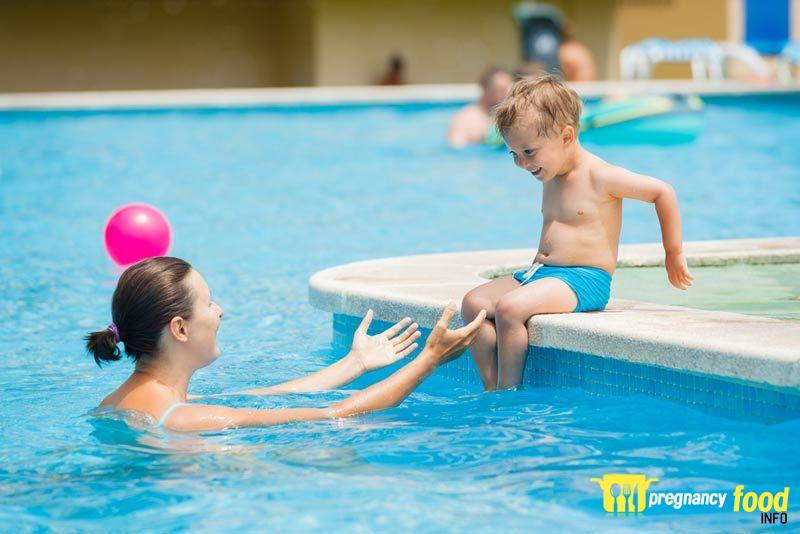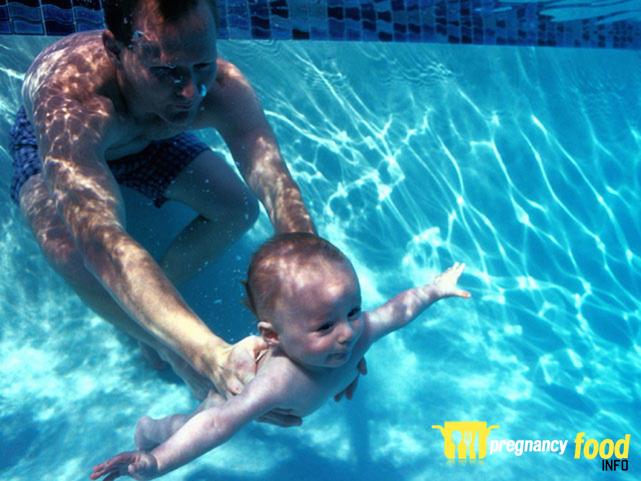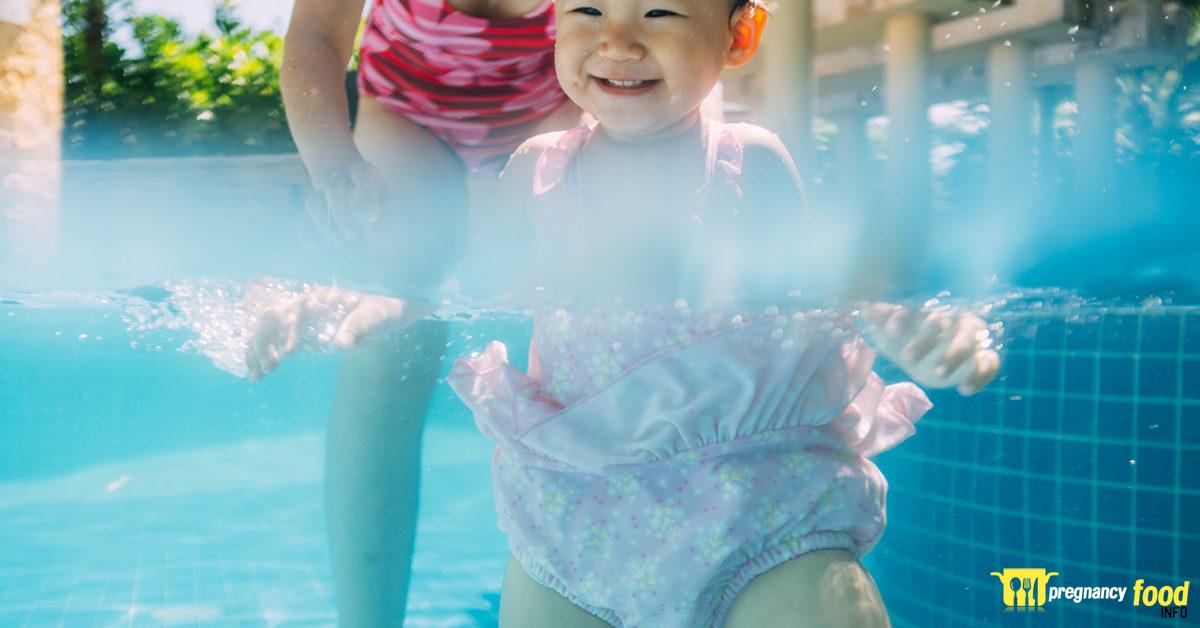During the summer, it’s important to keep in mind the answer to the question, “When can my baby go in a chlorine pool?” There are several things you can do to protect your baby’s health, and there are also some precautions you can take to keep the pool clean.
Swimming is a form of exercise for babies
Introducing swimming early to your baby helps to improve their physical and emotional health. It also boosts their confidence and self-esteem. Swimming also helps them learn the skills they need to succeed in school.
When babies start swimming, they will develop self-confidence and self-control in the water. Swimming strengthens their lungs, muscles, and coordination. It also improves their balance. They will learn how to swim short distances unaided at a very young age.

A study conducted at Lancaster University found that babies who swam from birth had a better balance than babies who did not. They were also more physically capable than non-swimmers. They had a better reach and balance than the control group, which is important for developing the large muscles needed to walk.
Swim diapers help prevent babies from getting in the pool
Having a swim diaper can be an effective way to prevent babies from getting into chlorine pool. However, these devices are not a substitute for frequent diaper changes. They are also not foolproof.
In addition to being an effective way to prevent babies from getting into the water, swim diapers also protect the pool’s water quality. They are a necessary part of many public swimming pools, and are also a good idea for backyard pools.

When purchasing a swim diaper, be sure to check out the manufacturer’s sizing recommendations. Swim diapers should fit snugly to prevent leaks.
They should also be easy to remove when wet. They should have no gaps around the waist or leg openings. They should also be able to be topped off with swim outfits.
Precautions to protect the pool from baby’s bowel movement
Using the proper precautions to protect chlorine pool from baby’s bowel movement is important to ensure the health of all swimmers. There are a number of different germs that can be found in pool water, including bacteria and viruses. These germs can cause diarrhoea, skin infections, eye infections and respiratory illnesses. While most waterborne illnesses will clear up on their own, following the following steps can help reduce the risk of infection.
Use an absorbent nappy when you take your baby swimming. This will help keep poo from getting into the water, but it will not stop germs from getting in.
Before swimming, make sure that the water temperature is warm enough for your baby. Swimming in warm water can help relax the bowel muscles and make it easier for your baby to poop.
Prevent itchy or painful rashes after chlorine pool
Keeping your skin healthy can prevent itchy or painful rashes after chlorine pool use. Chlorine is a disinfectant and kills germs and potentially harmful bacteria. However, it can irritate skin and eyes.
A person with a chlorine rash should take a break from swimming and apply a moisturizing lotion. A mild rash can be treated with over-the-counter medicine, while a more severe one requires prescription medication.
The rash may appear within a few hours, or it may develop over a couple of days. If itchy and painful, it is best to seek medical advice. Some people can be allergic to chlorine, and an allergist can help you determine if your rash is related to a skin condition.
Swimming pools are great for beating the heat. However, they can also cause itchy or painful rashes if you have sensitive skin.
Avoid chlorine pools when you’re in tow
Taking a dip in a chlorinated pool might seem like a good idea at the time, but can you really trust what you are putting into your body? Pool chemicals can be dangerous if you do not handle them correctly. A good rule of thumb is to keep your pool chemicals in a cool, dry place and to use them as you would any other cleaning agent.
In particular, you want to avoid swimming in chlorinated pools with kids and babies. They will be exposed to the toxins through their skin, eyes, and mouth. So, you want to be sure they have enough time to get a good rinse before they enter the water.
The other thing you want to remember is that chlorine can irritate your eyes and respiratory system. If you are sensitive to chlorine, you may experience dry, itchy skin.




